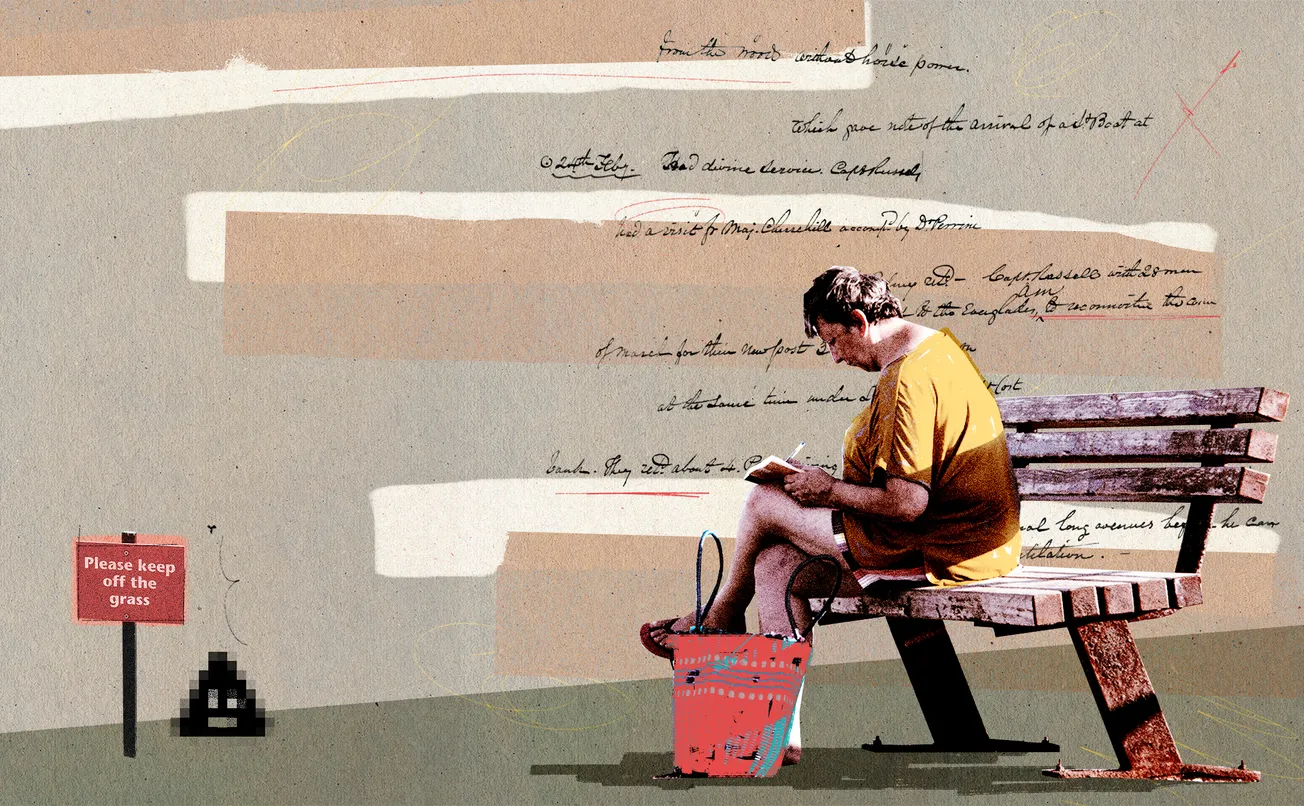The following extract from my memoir My Own Worst Enemy (Swift Press), chronicling the Sheffield I knew as a small and growing child throughout the 1960s, concerns smoking — something as common as breathing then, but which in the past decade has swiftly been relegated to something now considered worthy of both historical and cultural interest and investigation.
Grown-ups of all ages smoked; children experimented from their early teens onwards, all of us desperate to reach that adulthood by this and other means. There was no stigma attached to smoking then, and though we might have been aware of the distant health warnings already being sounded, few of us took these seriously. Every home, every pub, every cinema, every public space was filled with smokers; we filled the air with our smoke and the streets with our cast off filters. Men worked in heavy industries and drank with other men in small backstreet boozers. For many, smoking formed as important a part of their leisure time (though none would have dreamed of calling it that) as anything else they undertook to stave off the moment when it was time to return to work.

Almost every adult I knew smoked, most continually, many heavily: twenty to forty cigarettes a day would be considered normal, sixty not unusual. My mother and father smoked, all my uncles and most of my aunts smoked. My grandmother and grandfather smoked. They all smoked like they drank their endless cups of tea — without thinking, because it was a cheap and simple pleasure, and because it was something to do when nothing else presented itself.
People smoked while they were eating, performing household chores, while on the toilet — especially while on the toilet; smoking was considered an aid to constipation. They smoked while shopping, in the cinema, driving, waiting for a bus. An evening watching television was completed only by a succession of boiled kettles and filled ashtrays. Perhaps no one noticed the smell of smoke which permeated the house and which impregnated clothes, carpets, furnishings, hair; certainly no one would ever be rude enough to mention it or, God forbid, to ask people to stop, however briefly. Occasionally, someone might jokingly ask for a window or door to be opened, or someone would use a folded newspaper to waft away the gathering smoke when the air finally became too thick.
When we still had the coal fire, the various streams of pale blue tobacco smoke could be seen flowing across the room toward the flames and the chimney’s up-draught.
In addition to the ashtray on a pedestal beside my father’s chair, others sat on every surface. A plunger at the top of the pedestal meant that both ash and stubs could be spun away out of sight into the hollow base of the stand. Another of our prize possessions, second only to the carriage clock, was a lighter embedded in a block of onyx four or five inches square. To us, the onyx was a precious stone. Other ashtrays came from pubs, advertising various drinks. Cigarette ends were extinguished and left beside uneaten food or dropped into half-filled mugs of cold tea, where they hissed and were left to disintegrate before the cup was retrieved, rinsed and used again. Outside, glowing tips were crushed between nicotine-stained fingers and thumbs and the dying sparks scattered to the ground.

Men who had been in the Navy — or so we imagined — smoked only Senior Service, strong, full-strength, filterless cigarettes. When these or the more common Park Drive were not available, those same men would snap off the filters of other brands and smoke these. Frugal men broke cigarettes in half and put part behind their ear for later. Packets were offered around as casually and as freely as greetings; people often took two cigarettes at a time and no one was offended.
Men brandished treasured lighters like trophies. My father possessed a small circular brass lighter with the crest of the Yorks and Lancs Regiment in which he had served his National Service. It had a wick and a metal flint and was fuelled by petrol. Most of these lighters were teased to life only by the men who knew how to operate them, and the flames from both these and struck matches were cupped in windbreak hands as men huddled together in a kind of conspiracy to reach the flame.
Chain-smokers lit their next cigarette from the glowing stub of their last. Some men held their fags in the hollow ball of their hands with the filter barely protruding from the circle of their yellow fingers and nails. Some men, my father included, occasionally kept their cigarettes in a slim gilt case, pulled from an inner pocket and then opened and a cigarette removed in a single deft, one-handed movement. When one of these was out, the case was then flicked shut and the cigarette ceremoniously tapped against its lid. Many of these cases had been received as gifts and were dutifully inscribed with the initials of the smoker.
My grandfather smoked a pipe, and like most men his age he carried a small Sheffield-made penknife with a miniature blade designed solely for clearing out the residue of the wooden bowl — a combination of resinous, half-burned tobacco and congealed, evaporated saliva. Each time it was lit, the pipe would be inspected, tapped against a hard surface and then scraped clean; or the surface of the remaining, unburned tobacco would be scraped and then supplemented with fresh strands. My grandfather’s thumb fitted perfectly into the bowl and was used to press down this new tobacco.

Lighting the pipe was always another carefully observed ceremony — holding a lit match slightly above the bowl’s rim and then making a succession of gentle sucks so that the flame flared and then bent down toward its waiting fuel. This was done three or four times until smoke was rising, after which any excess fire was smothered to a glow beneath the ball of a leathery thumb. Eventually, the spent match was waved out and the pipe considered up and running.
After that, it was a simple matter of knowing how often and how hard to suck on the stem. The bowl of the pipe was detachable for cleaning and every household possessed a packet of pipe cleaners — usually kept in a mug on the mantel — for this. Men blew into their detached stems and these whistled. Lifelong smokers made a great thing of favouring one brand or blend of tobacco over another.
Pavements and streets, especially around bus shelters and the entrance to public buildings, were strewn with half-smoked cigarettes. There was no shame or embarrassment involved in retrieving and collecting these, and many men carried empty tobacco tins for that specific purpose, crumbling open what they had gathered up and making new cigarettes with a packet of Rizla papers kept in the same tin.
My parents smoked Players Number Six, Embassy Regal or, on special occasions, Benson and Hedges, always considered a better quality cigarette because they were aimed at a better class of smoker, came in King Size and were packaged in a gold and black packet.

I was too late for cigarette cards — instead, I collected these from packets of loose tea and chewing gum — and, besides which, they always seemed to feature Famous Sportsmen of Yesteryear, in which I had no interest whatsoever.
I was thirteen when I started smoking, largely by stealing cigarettes in ones and twos from everyone around me.
My mother collected coupons, and once a year she ordered something from the cigarette manufacturers’ catalogues. These so-called gifts were invariably disappointing. Comedians on the television joked that you could send away for an iron lung for only ten million coupons. The reality was closer to a set of six plastic egg cups for a thousand. It hardly mattered: people were smoking anyway, and so whatever was acquired with the coupons was, essentially, free. Just like the divi points totted up at the Co-op each visit, or the Green Shield stamps given out in impressive-looking sheets every time a few shillings’ worth of petrol was put into the car.
When I was fifteen or sixteen, I gathered up hundreds of coupons, mostly from other people and cast-off packets, and sent off for a food-warmer designed to grace and complete any table setting and keep the food at a dinner party warm throughout the evening. It was something every hostess needed, apparently, and something she would not believe she had lived without. It was another world.
When it arrived, the food warmer consisted of a thin stainless steel box whose lid was perforated by a pattern of holes. Inside were two tea lights. Intended as a Christmas present for my mother, something to alleviate the daily domestic burdens of her life, it was the most disappointing thing I had ever seen. Upon receiving it, my mother was happy and grateful for the gift. I doubt it had ever occurred to me to consider that not only did we never sit down as a family at a table for a meal, but that there was no table with its settings as such; or even that these so-called dinner parties never took place. Besides, we ate our dinners at midday and our last meal of the day, tea, between five and six. Nothing ever needed to be kept warm throughout the evening.

Afterwards, I became more adventurous in my choice of cigarettes, alighting briefly on menthol Consulates which were advertised as being like smoking and sucking a mint simultaneously, but which in reality was considerably less than either. Ten Consulates and everything about the world was both queasy and sickly sweet.
Health and smoking were never true concerns. People might have talked about there being some connection between smoking and lung cancer, but it was never a serious consideration, and anyone who both smoked and gasped for air was considered merely unlucky. Men worked down mines, or in dirty, smoke-filled factories. Some men said that smoking actually cleared their lungs. My mother referred to it as her only pleasure. She smoked fewer than my father, and often the smoke was coming down her nose while she was still sucking it in at her lips.
Experienced smokers knew when to tap off dead ash and when to leave the fading glow alone; others flicked too frequently, exposing an excess of still-burning tobacco to the air and wearing their cigarettes down without getting the full benefit. Old men sat in pubs concentrating on their games of cribbage, the whole length of their forgotten cigarettes turned to ash. Everyone dropped ash on to their sleeves or trouser legs and then brushed this to nothing.
It was always my ambition to blow smoke rings, something I never mastered. Accomplished smokers — men and women — showed off, blowing a succession of rings decreasing in circumference which passed outward through each other before dissolving into the air. Men held pint glasses and cigarettes in the same hand and drank and smoked in single gestures. It was forever a world worthy of my childish envy, a true rite of passage into the life beyond that childhood.
Rhyme and Reason independent booksellers on Ecclesall Road (Tel: 0114 266 1950) are kindly offering My Own Worst Enemy by Robert Edric exclusively to readers of The Tribune for £12 (RRP £14.99). To claim your discount, quote the code: Tribune.

Comments
How to comment:
If you are already a member,
click here to sign in
and leave a comment.
If you aren't a member,
sign up here
to be able to leave a comment.
To add your photo, click here to create a profile on Gravatar.







